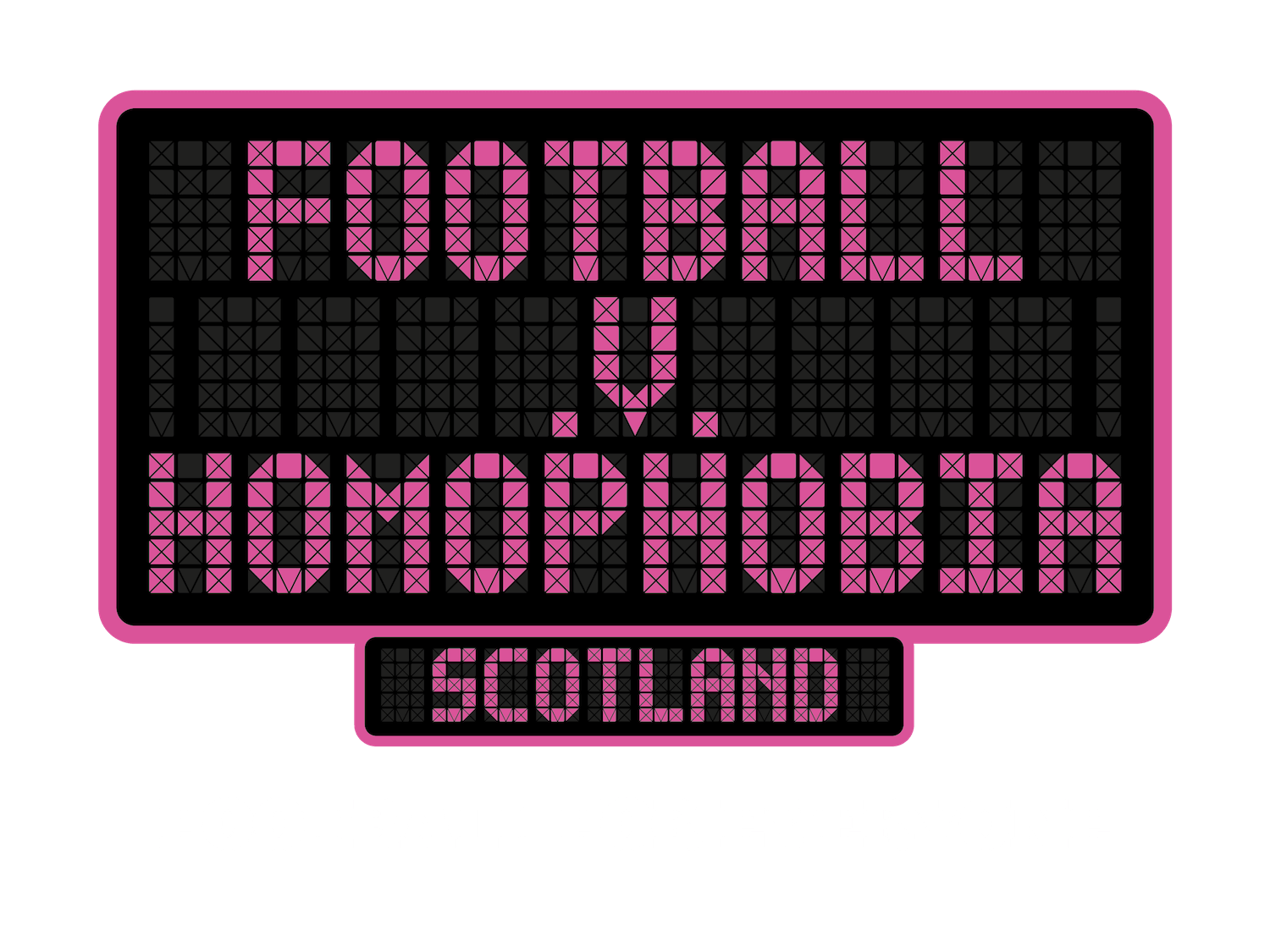On how his sexuality was a barrier to football and how self-acceptance changed that.
Football to me, to ever reach that top level, was always going to be an impossibility. I think it always felt like an impossibility because I just wasn’t one of those guys, if that makes sense? So, like Zander, I’ve always known that I’ve been gay. But always hoped that it would go away. Because I’ve always felt that was a barrier, a personal barrier, to ever entering the world of football. Even when I started refereeing at about 19, 20, it was even later than what a lot of younger people are starting now at 16. So I always thought there’s no way I can go and run around an amateur pitch. You’ve always– you’re always carrying that insecurity. But then when I did decide, you know what, what’s the issue here? When I met Hamish that was really the turning point for me, because I thought, well actually if nobody likes me because I’m gay I don’t really care. And I think once you get that acceptance to yourself, it doesn’t matter what anybody else thinks. So whilst, you know, Willie has been a huge positive impact on me in terms of refereeing and progression, I think just going back to the point around, well actually I now think I’m a calmer and better referee now than what I was probably five years ago. And that’s just because I’m far more self-assured.
On coming out to the football community and dealing with the intense media reaction.
I always remember it being a Scotland game, and I remember sitting with Hamish, who I was going out with at the time, still am, and it was going to be a story that was going to be running in one of the papers. And to be honest it come about following an interview that I had planned to do with Back Onside, the mental health charity. It was very, very well set up, very, very well ran, with a well-known presenter who I’d done the story with. And I remember being in this mind-set of no, I cannot do that, that story is not going out, it’s not going anywhere. And I remember it was half-past eleven at night, and I was in touch with the journalist, and Back Onside. And I remember constantly, no, don’t, pull it, please, pull it. It can’t go. And I remember it being so, so late that actually, it was like, to print. So suddenly I was in this mess of, oh my God, I’m now out of control. My whole life I’ve been out of control. What a fool I am, agreeing to this. And I’m even more out of control now. It was awful. Anyway, cut a long story short, I decided just to go with it. I decided it was going to be fine, Hamish was very reassuring and things like that.
And the story went wild, is how I felt. One of my colleagues, as well, we jointly done something at the same time. And it did get a lot of traction. It wasn’t ever really my intention, was for it to become a big thing. I suppose I probably wanted to do it to help maybe more my colleagues. It wasn’t that I wanted to see my face on news articles or on telly or whatever. And I always remember Sky phoning me like, “can you come and do an interview?” I’m like [laughs] “what about?” You know, and just I didn’t see the big deal. But it clearly was a big deal. And that’s why evidence to me actually, this is still a problem. Because if these news platforms wanted to speak about this, they clearly felt that this had traction. They clearly felt this was a story that was of interest to people. So then– and then from that point on, I mean, I was astonished at the people who contacted me, you know, professional footballers, other professional sportspeople. Other people who had fairly recently came out at that point who were very public. You know, so I felt like I was in this world of almost like, celebrity fame. And I was just this wee referee from Dumfries. You know, so I just didn’t– it took me a while to really process it to be honest.
On how coming out as gay has helped clubs to respect him more as a referee.
Clubs, when I say clubs: managers, players, not one player, not one manager, not one club, has ever said anything negative to me. They’ve all– I think they’ve all been quite empowered by the courage actually. Because, like Zander’s touched on there, some people don’t truly understand the culture of football until you’re in it. Like lots of sport, not just sport but work environments, wherever, everywhere has its own culture. And football does have a culture whereby being gay does take courage to come out and speak up really. So players are great, coaches etc have all been great. They’ve all been really, really supportive of me. And I actually think that strength probably has given them more reassurance, more assurance, from me as a referee. So they see that you’re strong, they see that you’re courageous. Because let’s be honest, refereeing isn’t for the faint hearted, you know? You’ve got to be resilient, you’ve got to be quite sure of yourself in a lot of situations when you can have hundreds, if not thousands, telling you that you’re wrong. You know, you’ve got to be assured that no, I’m actually right. So I think it’s– what coming out has done is it has actually assured a lot of people that I am a strong personality. As are my colleagues. But I think that has brought that more to the forefront.
